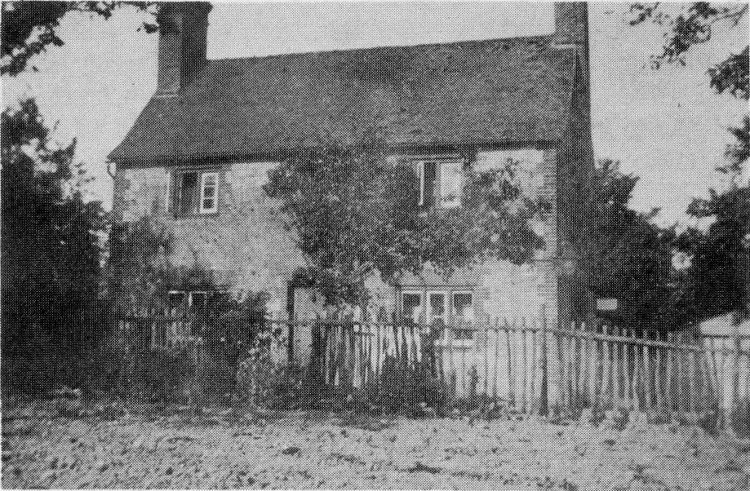|
Kentish Gazette 23 October 1858
East Kent Quarter Sessions, Tuesday last: Before J.B. Wildman Esq.
Peter McGowan, 39, traveller, was charged on four counts, with
felony and embezzlement from William Howland, of Boughton, from
Eliza Wells, at Newington, and from Charles Wells, at the same
place. The prisoner pleaded Not Guilty to all the indictments. Mr.
Addison appeared for the prosecution.
William Howland – I am a baker, of Boughton. I first saw the
prisoner in July, at the White Horse, Boughton. He said he wanted
some good timber, and my father recommended him some in Lord
Winchelsea's park. On the 3rd August I saw him again. He came to my
house, and I afterwards met him at the White Horse. He asked me
whether I had got any cash. I said “I may have a little – perhaps a
couple of sovereigns.” He said “I have got £12,000 in Rochester
Bank. If you could oblige me with a couple of sovereigns, I will
return them this evening.” I lent him the money. I did not see him
again till I saw him in custody at Folkestone.
George Walter – I am a clerk in the bank of Messrs. Day and
Nicholson, at Rochester. There is a branch of the London and County
Bank, but our bank is usually called the Rochester Bank. The
prisoner never kept an account with us.
Albert Rattray, a clerk in the Chatham branch of the London and
County Bank, said that the prisoner never had any account with that
Bank.
The prisoner, in his defence, said he expected the money would be at
the Bank. He was convicted.
The second count was for stealing a pair of trousers, the property
of the same man.
Mr. Howland was again called, and said that on the 2nd of August the
prisoner came to him and told him that he had an accident with his
trousers, by slipping into a cistern – that he was going to the
Rochester Bank to draw £12,000 – that he could not get them washed –
could prosecutor oblige him with a pair of trousers for one night?
Thereupon he went up and lent him a pair, a good pair, worth 27s.;
he went away and prosecutor never saw him again till he met the
prisoner at Folkestone.
The prisoner said that the pair he left was as good as the pair he
took away, but the prosecutor, with much warmth, denied that the
prisoner left any in place of those he took away. Prisoner was
convicted.
On the third count the prisoner was charged with obtaining £1 by
false pretences from Eliza Wells.
Prisoner made a similar statement in this case as in the other case
– that he was going to Ashford Bank to receive some money.
Prosecutor lent him a sovereign. The same evening she saw him again.
He said he must go next day to Dover, where he should be sure to get
it.
Evidence was given to prove that prisoner had no account either at
Ashford or Dover Banks, and the jury convicted him.
He was sentenced to two months' hard labour.
Second Court: Before E.H.K. Hugesen esq., M.P.
Daniel Livingstone, a private in the 100th Regiment was charged with
stealing a gold chain, pocket and other articles, belonging to a
comrade, and Mary Ann Hall was charged with receiving the same,
knowing them to have been stolen.
Thomas Salter, a Corporal in the 100th Regiment, deposed to having
lost his property while he was ill in the hospital. He left it in
charge of Corporal Browning. The value of it was £9.
Alfred Browning said that the last witness had left the property in
his possession. He put the things in his knapsack. When he was taken
into hospital he left his knapsack on the shelf, and on coming out
again he missed his knapsack, but afterwards found it in its place.
The property of the last witness, however, was gone.
By the prisoner: Our knapsacks are not now taken in with us when we
go to the hospital but they were at the time I went in.
Mary Hills, of the Bellevue Tavern, Folkestone, purchased the
property for £2, not knowing that it was stolen.
Louisa Bowling was with the prisoner Livingstone in the Alma beer
shop at Sandgate, when he called the woman Hall out and said “Take
these things, and if they are cried give them up.”
Thomas Newman took prisoner into custody, who said he found the
articles and gave them to the woman Hall, believing her to be the
servant in the public house, where he found the goods, that she
might return them to the owner if inquired for.
The prisoners had nothing to say in their defence; and the Chairman
having summed up the jury acquitted both the prisoners.
|
